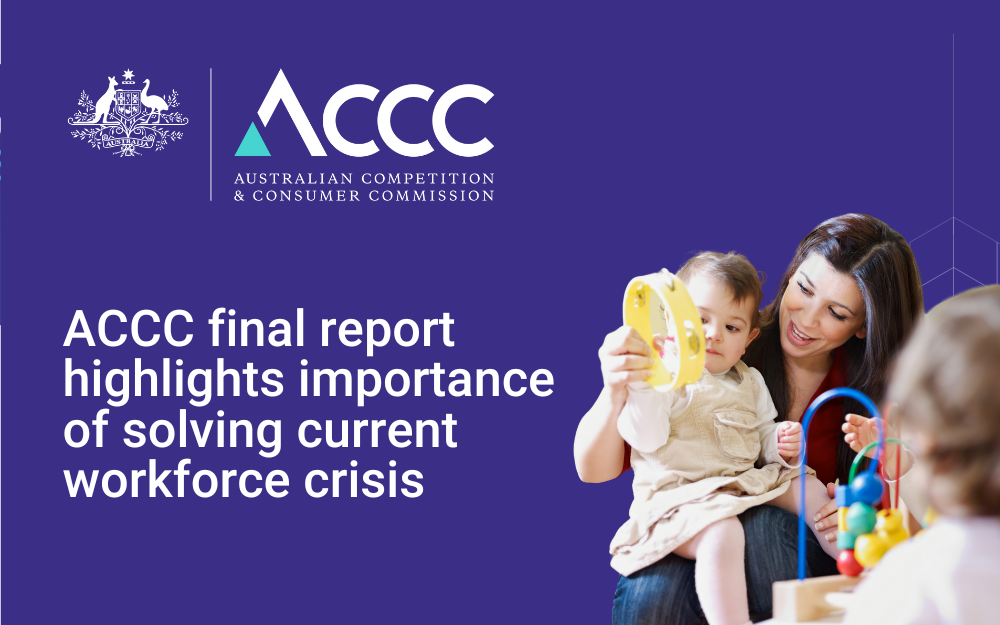The Australian Competition and Consumer Commission (ACCC) recently released its final Childcare Inquiry report, with one of the eight final recommendations focused on the early childhood education and care (ECEC) workforce.
The ACCC analysis shows that educator labour force shortages are affecting all childcare (sic.) markets, in terms of both the supply of childcare services and the costs to supply these services, and that the availability and quality of educators and staff delivering childcare services has a significant impact on the quality, reputation and profitability (through influencing occupancy) of a service.
The analysis also showed that stable tenure and continuity of staff also contributes to service viability.
Workforce shortages have been a persistent challenge for the ECEC sector for a number of years, however the increasingly universal recognition of the scale of the problem at policy maker levels is an important step towards resolving the issue.
Key findings in ACCC inquiry signal importance of ECEC workforce
During the ACCC’s broader investigation the Commission confirmed that teacher and educator wages and entitlements were the main driver of cost for supplying childcare, accounting for 69 per cent of the total costs for centre based day care services and 77 per cent of total costs for outside school hours care (OSHC) services.
The report noted that providers frequently cited labour as the main expense in their business, with staff ratios and qualifications being the major drivers, alongside an increase in casual and contract staff usage to support due to current staffing shortages.
Labour costs at large providers reportedly increased by 28 per cent since 2018, greater than the Wage Price Index over the same period, with a seven per cent increase reported for OSHC providers.
Against this backdrop some providers have taken steps to mitigate the growing cost through better roster optimisation solutions, particularly those that are AI driven such as Daitum’s Rostering for Childcare solution, that helps to ensure staff are rostered efficiently around child attendance and educator preferences.
ACCC recommends Governments consider how to better influence workforce outcomes
As part of Recommendation 4 the ACCC recommended that governments further consider how the existing regulatory frameworks support and influence the attraction and retention of educators and workforce in the ECEC sector.
It is well understood that availability and quality of educators delivering ECEC services has a significant impact on the quality, reputation and profitability of a service (through influencing occupancy) and the ACCC correctly called this out.
Approved providers across the country have invested significantly in educator acquisition systems and processes, but also importantly recognise that retaining great educators must also be a priority if they are to succeed in the current market place.
To that end the smarts embedded in the next generation of childcare focused rostering technologies are supporting providers by leveraging their ability to account for a wide range of roster preferences that support wellbeing and work life balance by ensuring individual educator circumstances are catered for.
When combined with the emphasis placed on resolving workforce issues found in the Productivity Commission’s recently released draft report into the ECEC sector as well as ongoing wage negotiations between employer and employee representatives the tide has most certainly turned when it comes to the recognition that something needs to be done in this space, and soon.

